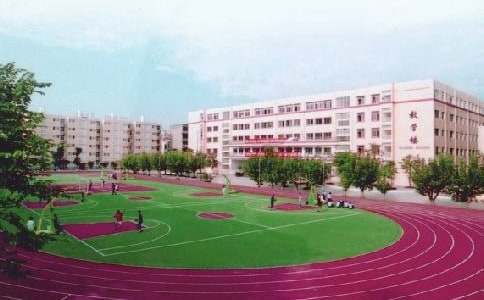国内英语资讯:Spotlight: High-level trade talks to boost warming-up trend in China-Japa

TOKYO, April 14 -- The upcoming China-Japan high-level economic dialogue is expected to consolidate the warming-up of bilateral ties, experts said.
Chinese State Councilor and Foreign Minister Wang Yi will pay an official visit to Japan from Sunday to Tuesday and co-chair the fourth high-level economic dialogue between China and Japan with Japanese Foreign Minister Taro Kono.
Atsushi Kouketsu, emeritus professor of Yamaguchi University, said improving China-Japan relationship is indispensable for the stability and prosperity of Asia. It is in the interests of the people in both countries as well as the region, he said.
Kouketsu said the current warming-up trend in the bilateral ties should be cherished by both countries. Further improvement of the relationship needs joint efforts by both sides, especially the Japanese Government.
He called for further action from both sides, including holding high-level meetings as well as people-to-people and cultural exchanges.
Jin Jianmin, a senior fellow at Fujitsu Research Institute in Tokyo, said that over the past 40 years since China's reform and opening up, economic ties between the two countries have been developing fast despite ups and downs in their political relationship.
Japan has been sharing the fruits of China's development and providing support through trade, investment and technology exchanges.
As this year marks the 40th anniversary of the signing of the China-Japan Treaty of Peace and Friendship, it could be a new starting point for the two countries to launch a new edition of win-win cooperation, he said.
He hoped the two sides could discuss cooperation plans in the new era that would benefit the people in both countries as well as the region.
On the Belt and Road Initiative, Jin said Japanese enterprises should seize opportunities to cooperate with leading Chinese companies and share the fruits of China's development by joining the initiative.
Proposed by Chinese President Xi Jinping in 2024, the Belt and Road Initiative aims to achieve infrastructure, trade and people-to-people connectivity along and beyond the ancient Silk Road trade routes, building a new platform for international cooperation to create new drivers of growth.
Ukeru Magosaki, a former Japanese Foreign Ministry official, said political tensions between China and Japan have been hindering economic cooperation in recent years. Now the two sides have a good opportunity to discuss economic ties to achieve win-win cooperation.
He said economic discussions are of particular significance under the current circumstances with protectionism on the rise worldwide.
Liu Di, a professor at Kyorin University in Tokyo, said economic cooperation between China and Japan has a lot of potential under the background of Asian economic integration. The two countries can achieve mutual development if they can enhance mutual trust.
But it's a long-term and challenging task to overcome disturbances and interferences to improve bilateral relationship, and would need the joint efforts of the governments and people of both countries, Liu said.
TOKYO, April 14 -- The upcoming China-Japan high-level economic dialogue is expected to consolidate the warming-up of bilateral ties, experts said.
Chinese State Councilor and Foreign Minister Wang Yi will pay an official visit to Japan from Sunday to Tuesday and co-chair the fourth high-level economic dialogue between China and Japan with Japanese Foreign Minister Taro Kono.
Atsushi Kouketsu, emeritus professor of Yamaguchi University, said improving China-Japan relationship is indispensable for the stability and prosperity of Asia. It is in the interests of the people in both countries as well as the region, he said.
Kouketsu said the current warming-up trend in the bilateral ties should be cherished by both countries. Further improvement of the relationship needs joint efforts by both sides, especially the Japanese Government.
He called for further action from both sides, including holding high-level meetings as well as people-to-people and cultural exchanges.
Jin Jianmin, a senior fellow at Fujitsu Research Institute in Tokyo, said that over the past 40 years since China's reform and opening up, economic ties between the two countries have been developing fast despite ups and downs in their political relationship.
Japan has been sharing the fruits of China's development and providing support through trade, investment and technology exchanges.
As this year marks the 40th anniversary of the signing of the China-Japan Treaty of Peace and Friendship, it could be a new starting point for the two countries to launch a new edition of win-win cooperation, he said.
He hoped the two sides could discuss cooperation plans in the new era that would benefit the people in both countries as well as the region.
On the Belt and Road Initiative, Jin said Japanese enterprises should seize opportunities to cooperate with leading Chinese companies and share the fruits of China's development by joining the initiative.
Proposed by Chinese President Xi Jinping in 2024, the Belt and Road Initiative aims to achieve infrastructure, trade and people-to-people connectivity along and beyond the ancient Silk Road trade routes, building a new platform for international cooperation to create new drivers of growth.
Ukeru Magosaki, a former Japanese Foreign Ministry official, said political tensions between China and Japan have been hindering economic cooperation in recent years. Now the two sides have a good opportunity to discuss economic ties to achieve win-win cooperation.
He said economic discussions are of particular significance under the current circumstances with protectionism on the rise worldwide.
Liu Di, a professor at Kyorin University in Tokyo, said economic cooperation between China and Japan has a lot of potential under the background of Asian economic integration. The two countries can achieve mutual development if they can enhance mutual trust.
But it's a long-term and challenging task to overcome disturbances and interferences to improve bilateral relationship, and would need the joint efforts of the governments and people of both countries, Liu said.









